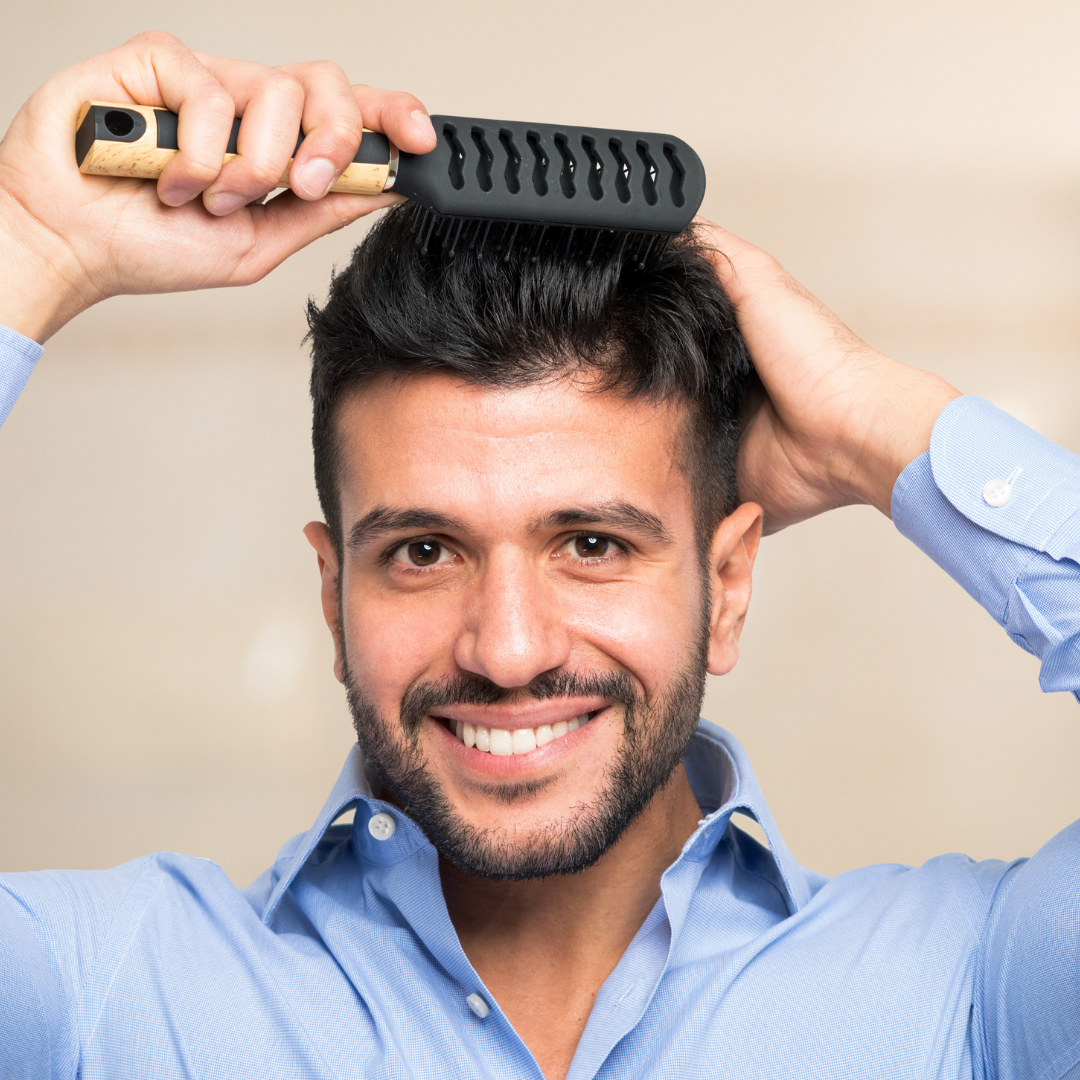
10 Essential Scalp Care Tips for Healthy Hair Growth
Share
Healthy hair starts from a healthy scalp. Often overlooked, scalp care is crucial for promoting hair growth and maintaining the overall health of your locks. A well-nourished scalp creates the perfect environment for hair follicles to thrive, preventing issues like dandruff, dryness, and hair thinning. This comprehensive guide will delve into ten essential scalp care tips to ensure your hair grows strong, shiny, and resilient.
1. Keep Your Scalp Clean
Maintaining a clean scalp is the foundation of good hair care. Regular cleansing removes dirt, oil, and product buildup that can clog hair follicles and impede hair growth. Use a gentle shampoo suited to your hair type, and avoid harsh chemicals that can strip your scalp of its natural oils. Aim to wash your hair two to three times a week, depending on your scalp's oiliness.
Key Points:
- Use a sulfate-free shampoo
- Avoid over-washing to prevent dryness.
- Rinse thoroughly to remove all shampoo residues.
2. Exfoliate Regularly
Exfoliation isn�t just for your face. Your scalp also benefits from regular exfoliation to remove dead skin cells and promote cell turnover. This helps to unclog pores and keep the scalp healthy.
How to Exfoliate:
- Use a scalp scrub or a brush designed for exfoliating.
- Gently massage the scrub into your scalp once a week.
- Rinse thoroughly and follow up with a nourishing conditioner.
3. Moisturize and Hydrate
A hydrated scalp is essential for preventing dryness and flakiness. Just like the skin on your face, your scalp needs regular moisture to stay healthy.
Tips for Hydration:
- Use a moisturizing shampoo and conditioner.
- Apply a leave-in conditioner or a scalp serum.
- Incorporate a weekly deep conditioning treatment into your routine.
4. Maintain a Balanced Diet
Nutrition plays a vital role in the health of your scalp and hair. A balanced diet rich in vitamins and minerals promotes healthy hair growth.
Nutritional Tips:
- Consume plenty of protein, as hair is made of keratin, a type of protein.
- Include iron-rich foods like spinach and lentils to prevent hair thinning.
- Eat foods high in omega-3 fatty acids, such as salmon and walnuts, to nourish your scalp.
5. Stay Hydrated
Drinking enough water is crucial for overall health, including the health of your scalp and hair. Dehydration can lead to a dry, itchy scalp and brittle hair.
Hydration Tips:
- Aim to drink at least 8 glasses of water a day.
-
Include hydrating foods like fruits and vegetables in your diet.
6. Massage Your Scalp
Scalp massages stimulate blood circulation, which helps to deliver essential nutrients to hair follicles. This can promote hair growth and improve the overall health of your scalp.
How to Massage:
- Use your fingertips to gently massage your scalp in circular motions.
- Consider using natural oils like coconut or jojoba oil for added benefits.
- Massage for 5-10 minutes daily.
7. Avoid Excessive Heat and Chemical Treatments
Heat styling and chemical treatments can damage the scalp and hair, leading to dryness, breakage, and hair loss.
Protective Measures:
- Limit the use of hair dryers, straighteners, and curling irons.
- Always apply a heat protectant before styling.
- Opt for natural or less harsh chemical treatments when possible.
8. Choose the Right Hair Products
Using the right hair products can make a significant difference in the health of your scalp and hair. Look for products that are free from harmful chemicals and tailored to your specific hair needs.
Product Tips:
- Select shampoos and conditioners that are free of sulfates, parabens, and silicones.
- Use products that address your scalp concerns, such as dandruff or sensitivity.
- Avoid heavy styling products that can build up on the scalp.
9. Protect Your Scalp from the Sun
Just like your skin, your scalp can get sunburned, leading to damage and hair loss. Protecting your scalp from the sun is crucial, especially during the summer months.
Sun Protection Tips:
- Wear a hat or scarf when spending extended periods outdoors.
- Use a sunscreen spray designed for the scalp.
- Avoid peak sun hours when UV rays are the strongest.
10. Manage Stress
Stress can negatively impact your scalp and hair health, leading to issues like hair loss and scalp conditions. Finding ways to manage stress is essential for maintaining a healthy scalp.
Stress Management Tips:
- Practice relaxation techniques such as yoga, meditation, or deep breathing exercises.
- Ensure you get enough sleep each night.
- ?Engage in regular physical activity to reduce stress levels.
